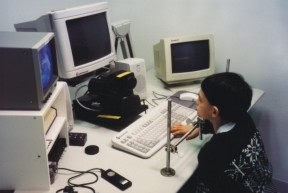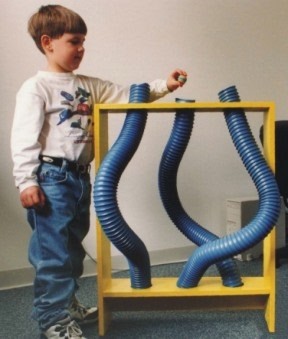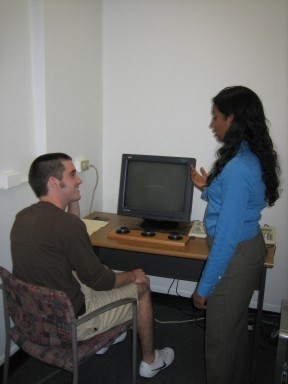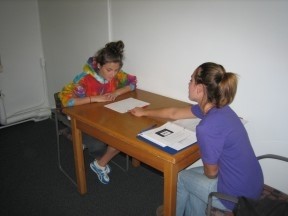Research


Research in the Clinical Neuropsychology Laboratory is primarily aimed at increasing our understanding of the cognitive and neural processes underlying typical and atypical development. By making systematic comparisons across various etiologies of brain dysfunction and across different epochs of the life-span, it is our hope that a comprehensive model of neurocognitive development may be constructed that accounts for functional outcomes resulting from brain damage and resulting from uncompromised life-span development. The long-term goal of our research is to facilitate the design and implementation of more effective rehabilitation strategies to improve cognition, daily function, and quality of life for children and adults with brain injury.
Within this context, our work focuses on the development of cognitive abilities in children with neurodevelopmental disorders such autism and phenylketonuria. In our research, we tend to utilize a broad range of measures and technologies, which represent an integration of experimental psychology, clinical neuropsychology, and cognitive neuroscience. For example, we use standardized neuropsychological measures (e.g., the Delis-Kaplin Executive Function System; DKEFS) as well as experimental measures (e.g., go/no-go inhibitory task) to assess cognitive functioning. From a technological standpoint, our research can involve custom-designed computer tasks, eye movement monitoring, and/or 3-dimensional hand movement tracking. It all depends on what the best approach/method is for answering the current research question.


In addition to conducting behavioral studies, we also utilize neuroimaging techniques to better elucidate the neural substrates of cognition in individuals with and without early brain injury. Along these lines, we recently completed a study looking at functional connectivity and structural integrity in the prefrontal cortex in children with phenylketonuria (PKU), and we are currently conducting a study that will utilize a combination of functional magnetic resonance imaging (MRI), structural MRI, and diffusion tensor imaging (DTI) to evaluate the integrity of the prefrontal cortex in adolescents with autism.
Recent developments at the University of Missouri have made it an exciting time for the laboratory. For example, in 2020 the University established the Cognitive Neuroscience Systems (CNS) Core facility, which provides laboratory space and instrumentation required for conducting translational cognitive neuroscience research. It houses a research-dedicate Siemens 3T PRISMA Fit MRI scanner with a Mock Scanner as well as EEG and Transcranial Magnetic Stimulation (TMS) suites with equipment required for neuronavigation-guided TMS research. In addition, the facility includes numerous experimental testing rooms for cognitive / behavioral experiments and clinical rooms for biological specimen collections. Utilizing the CNS facility as well as other campus resources, our laboratory regularly collaborates with numerous faculty from MU as well as other institutions to look at a range of issues related to neuropsychology, neurology, genetics, and treatment in individuals with neurodevelopmental conditions (e.g., autism, PKU).
